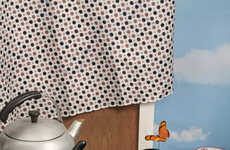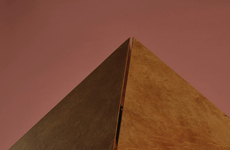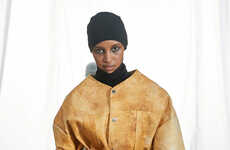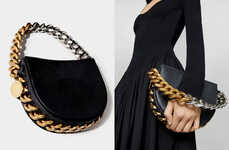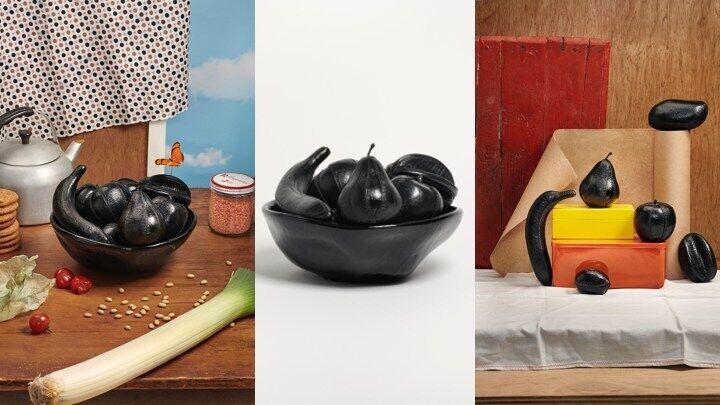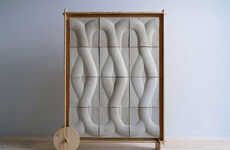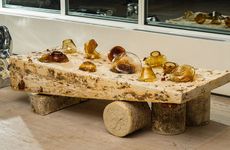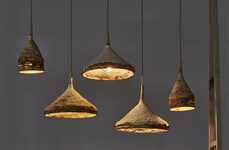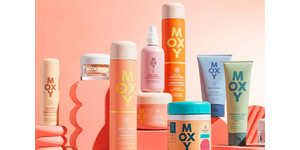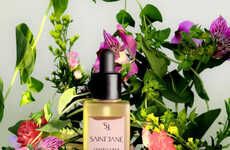
Heron Preston and MycoWorks Created a Bowl with Reishi
Laura McQuarrie — December 12, 2022 — Art & Design
References: madewithreishi & prnewswire
Artist, creative director and designer Heron Preston created a limited-edition fruit bowl using MycoWorks' mycelium material Reishi. Reishi is described as "a unique, flexible, durable material that emulates the handfeel of animal leather but is made entirely from mycelium, the infinitely renewable root structure of mushrooms."
The fruit bowl is not only designed with Reishi but inspired by it too, and it represents a new horizon in breakthrough materials with virtually endless applications, and biotechnology of the future.
A Fruit Bowl by Heron Preston for MycoWorks will be available exclusively on a new digital platform by Heron Preston (L.E.D. or "Less Environmentally Destructive") that will launch early next year. This standout design is just the first of many pieces to come from Heron Preston and MycoWorks.
The fruit bowl is not only designed with Reishi but inspired by it too, and it represents a new horizon in breakthrough materials with virtually endless applications, and biotechnology of the future.
A Fruit Bowl by Heron Preston for MycoWorks will be available exclusively on a new digital platform by Heron Preston (L.E.D. or "Less Environmentally Destructive") that will launch early next year. This standout design is just the first of many pieces to come from Heron Preston and MycoWorks.
Trend Themes
1. Sustainable Material Innovations - The use of mycelium material Reishi for a fruit bowl design opens up opportunities for sustainable material innovations.
2. Biotechnology Advancements - The creation of a fruit bowl made entirely from mycelium and inspired by it highlights the potential of biotechnology advancements.
3. Circular Economy Design - Using infinitely renewable mycelium in designs such as the Heron Preston fruit bowl could lead to possibilities of implementing circular economy design principles.
Industry Implications
1. Home Decor - The use of sustainable and innovative materials in home decor products have the potential to disrupt the industry, especially in eco-conscious markets.
2. Fashion - The use of mycelium material for fashion items such as accessories or shoes has the potential to disrupt traditional leather products and open up new avenues for sustainable fashion.
3. Biotechnology - The use of mycelium material highlights the potential for biotechnology advancements and could further disrupt the industry with innovative solutions to environmental challenges.
5.1
Score
Popularity
Activity
Freshness


